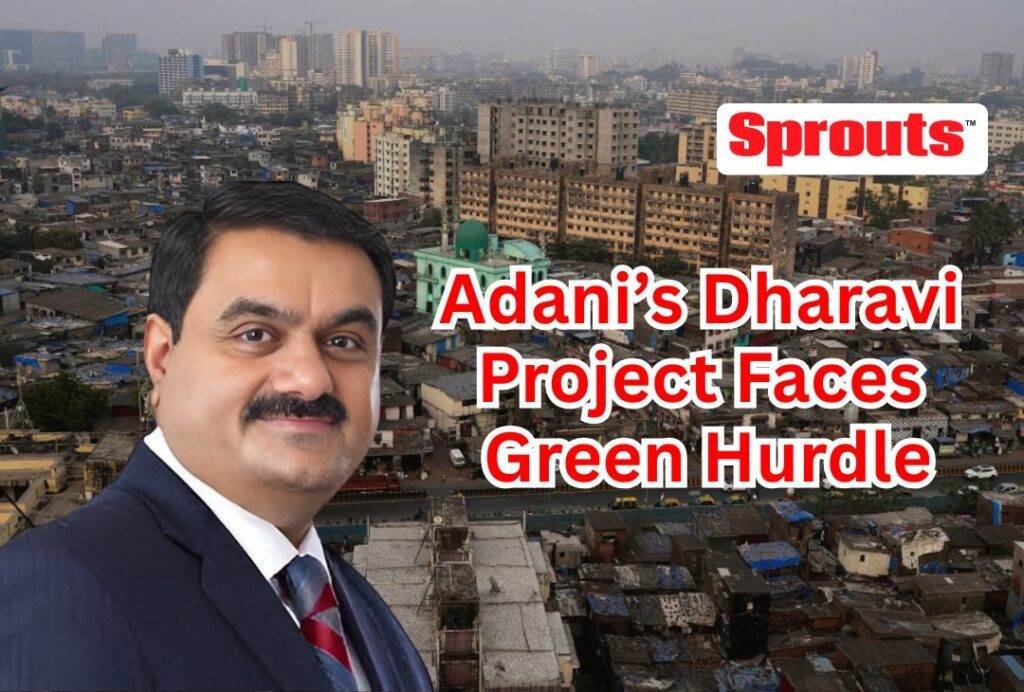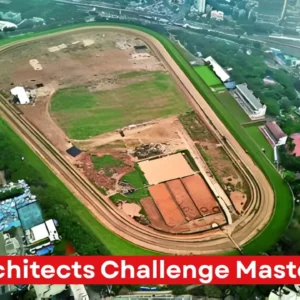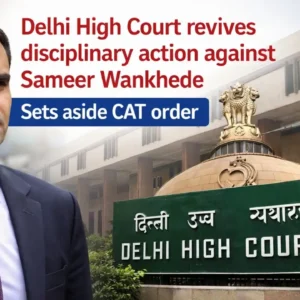
Adani’s Dharavi Project Faces Green Hurdle
• Deonar Land Row: Rules Dumped for Real Estate
• Activist Slams Govt Over Toxic Land Transfer
Unmesh Gujarathi
Sprouts News Network
In a controversial move raising significant environmental and regulatory questions, the Maharashtra state government and Mumbai Municipal Corporation have decided to allot 124 acres of Deonar dumping ground to the Dharavi Redevelopment Project, a mega real estate initiative led by the Adani Group. This decision has sparked outrage from environmental activists, urban planners, and legal experts, particularly due to its direct violation of the Central Pollution Control Board (CPCB) guidelines, which prohibit construction activity on closed dumping grounds for at least 15 years.
Legal activist Adv. Sagar Devre has issued a formal legal notice to both the state authorities and the civic administration, demanding immediate cancellation of this allocation. The Sprouts News team has reviewed the CPCB’s directives, which explicitly mandate that no development be permitted on such land for over a decade and a half post-closure due to soil toxicity and long-term public health risks.
• Adani Dharavi Project: Deonar and Mulund Dumping Grounds: Urban Land Under Dispute
The Deonar site, one of Asia’s oldest dumping grounds, was officially closed after decades of use and is considered environmentally sensitive. Despite this, tenders worth thousands of crores have been floated for site rehabilitation, paving the way for proposed construction under the Dharavi redevelopment plan. Parallel efforts are also underway to include the Mulund dumping ground in the same project scope, raising further alarms over the encroachment of ecologically unstable zones for real estate purposes.
Devre alleges that the redevelopment plan is being used as a cover to monetize prime urban land under the pretext of public housing, while actually benefiting corporate developers. “Instead of adhering to CPCB regulations, the state is facilitating massive land acquisition for vested interests,” said Devre in his statement to Sprouts News.
• Adani Dharavi Project: Activist Demands Buffer Zones and Public Green Spaces
Adv. Devre’s notice includes a clear set of demands aligned with national environmental policy:
1.Immediate cancellation of the decision to allocate Deonar and Mulund dumping grounds to the Dharavi project.
2.A ban on any form of construction at these sites for the next 15 years, as per CPCB guidelines.
3.Declaration of a 500-meter buffer zone around both grounds to safeguard residential areas and ecosystems.
4.Repurposing the Mulund site into a Central Park-style green space, modeled after New York’s iconic public park, in place of a proposed golf course which he claims caters only to elite real estate interests.
Urban development experts echo these concerns, highlighting the dangers of developing on chemically unstable land, including risks to groundwater, air quality, and the health of nearby residents. The call for sustainable urban planning resonates strongly in a city like Mumbai, where green space per capita remains far below global averages.
• Adani Dharavi Project: Policy Gaps and Real Estate Influence in Urban Planning
This episode has again brought to light the long-standing tension between public interest and private capital in Mumbai’s urban development. As per Sprouts News’ analysis, the reallocation of land once deemed hazardous to real estate conglomerates reflects a broader trend of regulatory leniency under political pressure.
Stakeholders now await the official response from the Maharashtra government and the Municipal Commissioner. Meanwhile, environmental groups are gearing up for legal interventions, public petitions, and awareness campaigns to safeguard what little remains of Mumbai’s environmental commons.
For Sprouts News, this case underscores the urgent need for stricter enforcement of environmental laws and the prioritization of public green infrastructure over luxury urban projects.

















